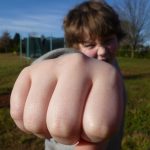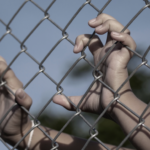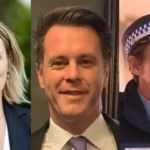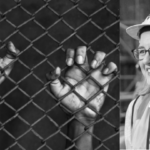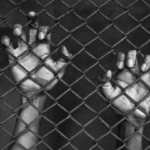Queensland to Launch Draconian Crackdown on Youth Crime Wave That Doesn’t Exist
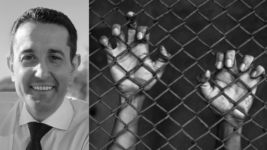
The Liberal National Party took out the Queensland election last weekend, with a landslide victory that saw the new government led by premier David Crisafulli taking out 53 seats in parliament compared with Labor’s 33 seats so far, following an election campaign that had youth crime as its “defining issue”.
In the wake of the victory, the LNP now considers that it has a mandate to progress it’s adult crime, adult time policy, which involves a complete overhaul of the youth justice system of penalisation, as children that commit serious crimes, such as the offences of murder and manslaughter, motor vehicle theft or grievous bodily harm will face adult sentences.
The glaring anomaly to all this is that despite the claims of politicians regarding a “youth crime crisis” it’s been widely reported in the leadup to the election that youth crime rates in Queensland have halved over the past 14 years and in 2022, the youth crime statistics in the northern state dropped to a record low and these figures have stayed relatively steady since then.
This means that the former Palaszczuk Labor government launched its youth crime crackdown in late 2022, the same year that youth crime was at an all-time low. The reports on Queensland’s downward trend in youth crime is further a nationwide occurrence, which again raises questions as over the last 24 months a majority of states and territories have all launched youth crime crackdowns.
So, the recent Queensland election was won by Crisafulli as he presented the tougher youth crime policy to resolve a crime wave that’s a furphy and it’s likely both leaders were well aware of this, especially as the crime issue was key to winning the election.
Colonial one-upmanship
“If you make the choice to commit adult crimes, you should know we have made the choice to ensure there are consequences for that behaviour,” said Crisafulli, as he launched the adult time, adult crime policy at a Queensland LNP conference in July. “We will restore consequences for actions for young criminals – adult crime, adult time.”
Adult crime, adult time is part of the broader Making Our Community Safer policy that Crisafulli was unveiling on the July evening, and along with ensuring kids as young as 10 will face adult sentences if they commit serious crimes, the package also involves an early intervention program to divert children from crime and the Staying on Track rehabilitation program.
The $175 million Staying on Track is “an intensive 12-month rehabilitation program” that “will restore discipline and rehabilitation as the key focuses for kids in detention”, and once this has ended children will receive 12 month post-release support from a community service officer, who is partnered with them whilst they’re in prison.
The reasoning provided for the Queensland crackdown on all youth, but especially First Nations youth, is the same that was given by the Minns government when it embarked on its crackdown on youth crime last March, and that is that the youth crime wave is being committed by a small group of child offenders and therefore, all children will serve adult time going ahead.
As the Queensland LNP put it, “the Queensland youth crime crisis has been fuelled by a growing cohort of hardcore repeat offenders who are holding Queenslanders hostage in communities across the state.” However, these hardcore reoffenders said to be ripping up the entire region are just kids.
The previous Queensland Labor government had twice suspended the Human Rights Act 2019 (QLD) last year to pass youth crime laws that obviously weren’t in accordance with human rights law. The first time involved the creation of a youth breach of bail offence and the second involved making it lawful to lockup kids in adult watchhouses, which made a long-time questionable practice the law.
Targeting Indigenous youth
The somewhat masked aspect to youth crime crackdown announcements in this country is that while these laws might be colourblind, those that enforce them are not, and therefore, these laws target First Nations kids.
On an average night in the June quarter of 2023, there were 812 children, between the ages of 10 to 17, in the nation’s youth justice facilities. The state with the largest number of kiddie inmates was Queensland with 306. And 59 percent of these kids were First Nations children, despite the fact that in the broader population they only account for about 6 percent of all those aged between 10 to 17.
According to the Australian Institute of Health and Welfare, on an average day in Queensland in 2022–23, First Nations youth made up 7.7 percent of those aged 10 to 17 in the general population, but they made up 71 percent of, or 201, kids in detention, as well as accounting for 66 percent of those children under state supervision.
So, the Queensland government just ran an election on the perception that a youth crime wave was underway, when it wasn’t, and the major party leaders tried to outdo each other on how they were going to throw the book at mainly Indigenous kids.
In the face of the evidence
“We call on premier David Crisafulli to explain why he thinks he knows better than every expert in this field who say that imprisoning children only increases offending and harms these kids, their families and communities,” said Amnesty International Australia’s Indigenous Rights campaigner Kacey Teerman in a statement this week.
Teerman added that multiple inquiries show that imprisoning youths results in greater trauma and alienation and it has not been shown that increased sentencing that involves children spending an extended amount of time in gaol to equal that of adults does reduce crime, and she underscored that the new premier ought to reconsider his plans.
Crisafulli told the press this week that there would be enough time to get in a week’s debate on the youth crime crackdown legislation during late November and early December sittings, so that the laws should be passed before Christmas.
Sisters Inside CEO Deb Kilroy set out in a September statement that the plan was “nothing short of draconian”. And she added that the new laws would “allow the courts to consider the full criminal history of children during sentencing, a measure that will disproportionately target Aboriginal children and fuel the mass incarceration of children and young people across the state”.
“The LNP’s proposal strips away any possibility of a second chance for children. Instead of providing the necessary support for children to change the trajectory of their lives, they are condemning them to a future of punishment and incarceration,” the lawyer made certain.



